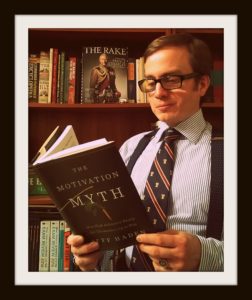 Martin Luther King, Jr. said, “We must accept finite disappointment, but never lose infinite hope.” On Martin Luther King, Jr. day most banks are closed, schools are closed, and the post office is closed. It is a sacred day of reflection for most Americans. A major part of the quest for success is living through times of disappointment but learning from these struggles while maintaining hope for better times. Learning from the failures as well as the successes of great leaders will allow us to be more successful in our daily lives. Until we discover these tips for success they remain secrets to us. One of the goals of Emancipationfrompoverty.com is to hack the most valuable of these secrets for practical application in daily life.
Martin Luther King, Jr. said, “We must accept finite disappointment, but never lose infinite hope.” On Martin Luther King, Jr. day most banks are closed, schools are closed, and the post office is closed. It is a sacred day of reflection for most Americans. A major part of the quest for success is living through times of disappointment but learning from these struggles while maintaining hope for better times. Learning from the failures as well as the successes of great leaders will allow us to be more successful in our daily lives. Until we discover these tips for success they remain secrets to us. One of the goals of Emancipationfrompoverty.com is to hack the most valuable of these secrets for practical application in daily life.
Applying the wisdom of President Barack Obama in our daily lives…
We can all agree that former President Barack Obama has lived a very inspiring life whether we agree with his politics, disagree with his politics, supported him, or supported his opponent. His youth was very difficult having been raised by his mother and later by his grandparents while having had very little contact with his father who tragically died when Barack was only 21 years old. Unfortunately, he suffered from severe substance abuse during his youth as a way to deal with his personal struggles. However, his university years formed a positive character in the young man that led to a great many successes during his professional career.
Former President Barack Obama said, “Change will not come if we wait for some other person or some other time. We are the ones we’ve been waiting for. We are the change that we seek.” We must have a feeling of urgency to take action now to improve our lives. He began his career as an attorney, then as a law professor, as a state senator, U.S. Senator, and then as POTUS. It was former President Obama’s realization that he could help others that aided in ending his substance addiction and which led to his great successes in both law and politics. Following his example, we should aggressively work towards finding efficient ways to increase cash in our pockets and to leave financial restrictions behind. Emancipationfrompoverty.com is the site dedicated to helping others to meet these goals by compiling all of the best resources for making and saving money.
Inspiring tidbits from “The Motivation Myth”…
One of life’s greatest secrets is that literally, anyone can be a great success in life. We all can achieve our dreams of leaving financial restrictions behind. It does not matter where we are in life. We can be a grocery store clerk earning minimum wage, a foodservice worker earning minimum wage, a retail cashier earning a couple of dollars above the minimum wage, or an administrative clerk earning a lower-middle-class wage, or an accountant earning an upper-middle-class income. I have done all of these things while simultaneously continuing my university education.
In his new book, “The Motivation Myth”, Jeff Haden exposes the secrets of high achievers and reveals that most of them live lives with increased efficiency based on learning from their personal struggles. They prioritize what they do and eliminate activities that do not add value to their lives. Chapter 8 of “The Motivation Myth” is titled, “Do More by Doing Less.” How many times have we passed up great opportunities for making money by feeling that we simply do not have the time to put in to achieve our dreams of leaving financial restrictions behind?
Jeff Haden’s valuable tips to “Do More by Doing Less ” are these:
1) “Be the biggest fish”
Mr. Haden’s mentions that in order to achieve larger goals it is important to first be the best at what we currently do. If we work very hard as a food service worker we’ll make that move to crew trainer and shift supervisor, as I did when I worked at McDonald’s. In other words, if we excel in what we currently do then the additional responsibility that we crave will come in time.
2) “Start by doing a lot less”
With “Start by doing a lot less” Mr. Haden mentions that instead of attempting to do everything that we would like to do that we ought to create a “Would like to do list” and then streamline it to the achievable goals – value-added goals. Multitasking is very dangerous because when we multitask we are essentially mixing tasks that do not add value with value-added tasks and we run the risk of wasting a lot of time which restricts us from doing more tasks that add value to our lives.
3) “The 1 Percent Advantage”
Mr. Haden mentions that the best way to improve anything in our lives is to start small with 1% improvements. He compares “The 1 Percent Advantage” to how small improvements in a relationship are visible to the parties in that relationship. The basic idea is that once we start making small improvements we cannot stop and that it is in having many small improvements that we begin to see larger improvements in our lives.


